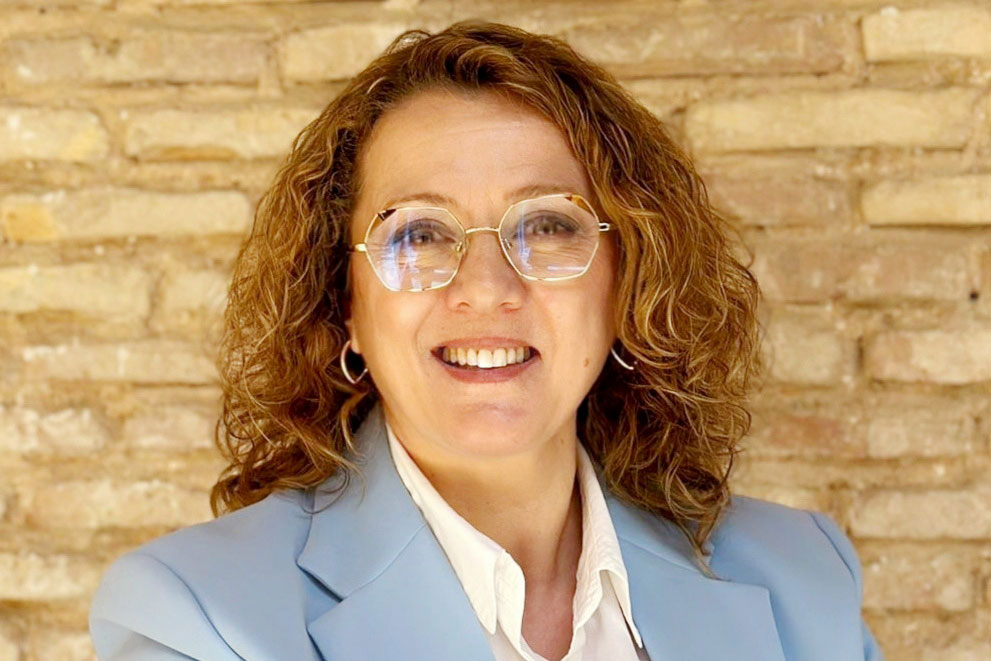Inmaculada Carrasco Monteagudo, professor at the University of Castilla-La Mancha, has been elected as the new president of the Ibero-American Observatory of Employment and Social and Cooperative Economy (OIBESCOOP) during the assembly held online on February 26. Professor Carrasco replaces Carmen Marcuello Servós, who was recently appointed president of the International Scientific Commission “Social & Cooperative Economy” of CIRIEC International.
In view of her recent nomination to CIRIEC International, Carmen Marcuello, professor at the University of Zaragoza and president of OIBESCOOP since 2016, decided at the end of last year to open a consultation period to hand over the presidency to a new person with the time and proper accreditation to dedicate to the position.
During the February 26 assembly, Inmaculada Carrasco was introduced and elected as president. Along with her, Inmaculada Buendía, also professor at the University of Castilla-La Mancha (UCLM), was appointed vice president of OIBESCOOP.
The OIBESCOOP board is completed by Elena Meliá Martí, professor at the Polytechnic University of Valencia and member of CEGEA (treasurer); Gustavo Lejarriaga Pérez de las Vacas, professor at the Complutense University of Madrid and director of EESCOOP (secretary); Maite Cancelo Márquez, professor at the University of Santiago de Compostela and director of CECOOP (board member); Rafael Chaves Ávila, professor at the University of Valencia, member of IUDESCOOP, and president of the Scientific Commission of CIRIEC-Spain (board member); and Carmen Marcuello Servós, who remains a board member.
Inmaculada Carrasco’s extensive career in social economy
Inmaculada Carrasco is a professor in the Department of Applied Economics I at UCLM. An academic specialist in social economy and its intersection with various aspects of local development, she holds a degree in Economics and Business Administration from the University of Valencia and a European doctorate from UCLM. She has over 30 years of teaching experience in different areas of economics and has achieved four research evaluation periods.
She has been a visiting professor at various universities, including the Université de Liège, Cambridge University and Università di Bologna. She is a member of the Scientific Commission of CIRIEC-Spain and the Editorial Board of ‘CIRIEC-España, Revista de Economía Pública, Social y Cooperativa’, as well as a member of EESCOOP and the Institute for Regional Development (UCLM).
She has participated in international research projects such as VINCI, collaborating in research networks with HEC Montréal, GEM Consortium, and CIRIEC International.
Her research has explored how the dynamics of the social economy can promote development, creating models that foster social and economic inclusion in disadvantaged communities. She has also focused on the relationship between social economy and the agri-food sector, analyzing how cooperatives can revitalize rural areas, contribute to the sector’s sustainability, and help retain the population. Additionally, she has studied the impact of credit cooperatives in rural areas and has explored sustainable finance and social impact, collaborating with Italian universities.
Her most recent work highlights the importance of social entrepreneurship as driver of innovation and social transformation. She advocates for policies that support the creation of social enterprises, researches their impact and how to maximize their potential, and explores aspects such as public-private collaboration.
Vice President Inmaculada Buendía, great international experience
The new vice president of OIBESCOOP, Inmaculada Buendía Martínez, holds a PhD in Business Administration from the Complutense University of Madrid and is currently working as associate professor at the University of Castilla-La Mancha. Her professional career has focused on cooperative management. She is the author of numerous scientific articles, books, and other publications, and she is a member of several international research networks and projects.
Her international experience in both America and Europe has allowed her to collaborate directly with multiple research centers in Latin America, Canada, and Ireland specializing in the field of cooperatives. Her current interests focus on cooperatives’ contribution to local development, generational change, financial inclusion policies, the role of financial cooperatives at the international level, cooperative governance, cooperative education, and social responsibility in the banking industry.







